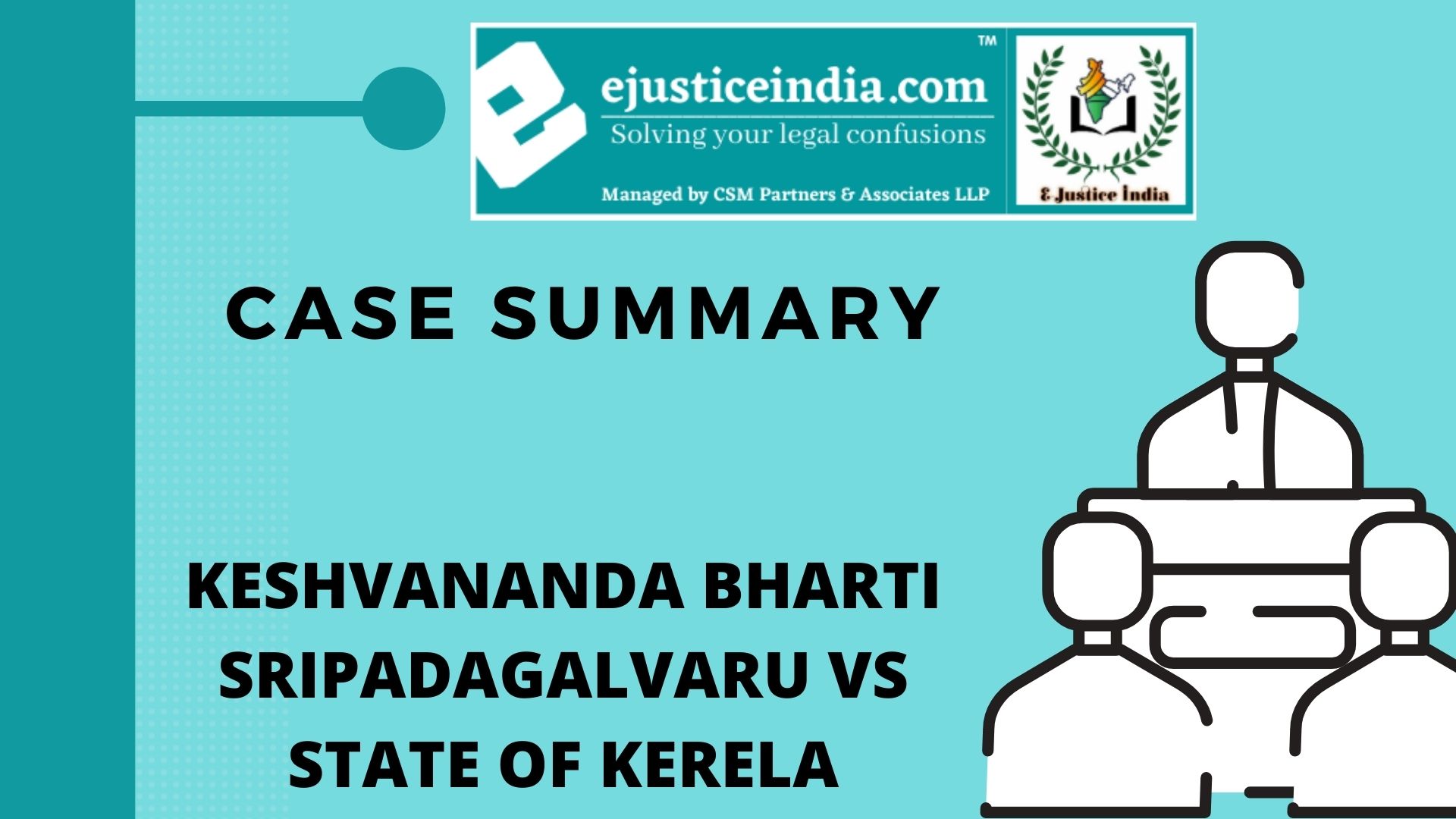Case Summary: Sinha Ramanuja v. Ranga Ramanuja
Author: Khushboo Chopra
CITATION
AIR 1961 SC 1720
BENCH
SUBBARAO, K.
INTRODUCTION
The case questioned the maintainability of the suit filed by Aradanaikar and trustee of the temple for the declaration of the right to first Theertham.
FACTS
In Tirunelveli district there is a temple at Alwar Tirunelveli called Athinathalwar temple. The deity presiding in the temple is of Lord Vishnu. In 10th and 11th century Vaishnavite saints, called Alwar’s and Acharyas, worship at the temple and sang in the praise of the god. As the time passed by, 20 smaller temples were erected to commemorate the lives of Alwar’s and Acharyas. Each of the temple has its own manager.
Sri Ramanujacharya was one of the greatest devotees of the lord Vishnu, who died in the year 1127 A.D. So, in 13th century a shrine was build in his memory known as Embrumanar temple, which is managed by Embrumanar Jeer the respondent. From the last mid-century, there have been many conflicts between the Jeers and others concerning the order of the priority in which certain honours has to be distributed among the Jeers when they worship at the temple of Sri Athinathalwar. A specified place is assigned to the said Jeers in the Ghoshti and a fixed order of precedence is perceived inter se between them. Because of this order of precedence there had been unending source of quarrel between the religious heads. Due to which on May 12, 1927, the Madras Hindu Religious Endowments Board, fixed the order of precedence for honours between the various Jeers to be observed both on ordinary and special days. By the said order the Board recognized the Emberumanar Jeer’s right to the honours and perquisites in precedence over the other Jeers on all the days except Vaikasi festival days, but he was not satisfied with the order and filed a case in the district court. When the precedence giving the Vanamamalai Jeer precedence over the Emberumanar Jeer; and this led to the Emberumanar Jeer filing an appeal but that was disposed off by the judge on the ground that it was not maintainable. Then he appealed to the high court who, on consideration of the evidence, reversed the findings of the district judge and affirmed those of subordinate judge and decreed the suits.
ISSUES AND FACT OF LAW
Whether the Theertham or any other honours shown to a person were merely as a mark of respect on the occasion of his visit to the temple or were part of the remuneration attached to his office?
JUDGEMENT
The court held that it was well settled that the high court has no jurisdiction to entertain the second appeal on the ground of erroneous findings of fact, however gross the error might seem to be. In the instant case, the High court was clearly in error in reversing the order of the District judge , which was one of the fact, that the Emberumanar Temple was neither subordinate to, nor part of the Athinalwar temple and no office -holder of the former could , therefore become an office holder of the later.


